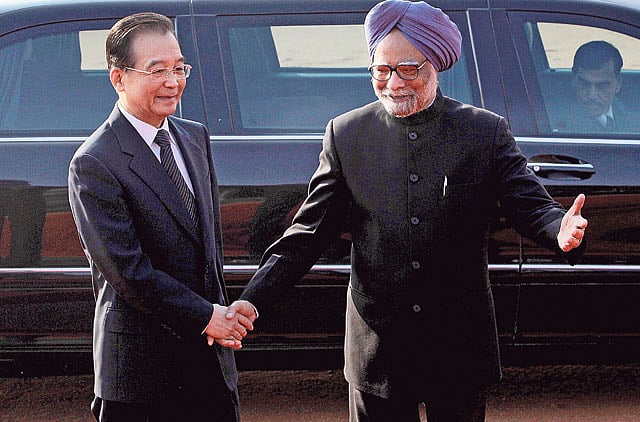India, China pick economy over ideology
Relationship will always be fragile, but conflict is not the solution to problems

India and China have set aside their political and security differences for now and are aiming to boost trade between two of the world's fastest growing economies.
This is good for political stability in South Asia and the global economy, which needs the rapid growth of the emerging countries to help pull it out of its slump. Both sides seem to know that economic and social development is more important to their people than ideology and politics. India and China have agreed to try and reach $100 billion in bilateral trade by 2015, up from $60 billion this year, according to reports. Some of this will be achieved by increasing India's exports to China, with which it runs a trade deficit — a sore point.
The target may sound ambitious, but given the rapid pace of growth in the two economies, they are likely to easily meet it. So far, some of the 300 to 400 business leaders who accompanied Chinese Premier Wen Jiabao on his three-day visit to India have already signed business deals worth $16 billion.
The relationship between the two countries will always be fragile. The reality is that they are competing to be international economic and political powers. China and India still have border disputes which earlier resulted in war. After India, Jiabao went to Pakistan, its arch-rival, to further relationships there. And, although China has committed its support to a bigger role for India in the United Nations, they are seen to be competing for influence in the organisation.
But none of this needs to lead to conflict between the world's two most populous countries. As Jiabao pointed out, the world is big enough for both of them to grow. It is perhaps more established powers that will feel the squeeze as international political and economic power shifts towards Asia.
Sign up for the Daily Briefing
Get the latest news and updates straight to your inbox
Network Links
GN StoreDownload our app
© Al Nisr Publishing LLC 2026. All rights reserved.